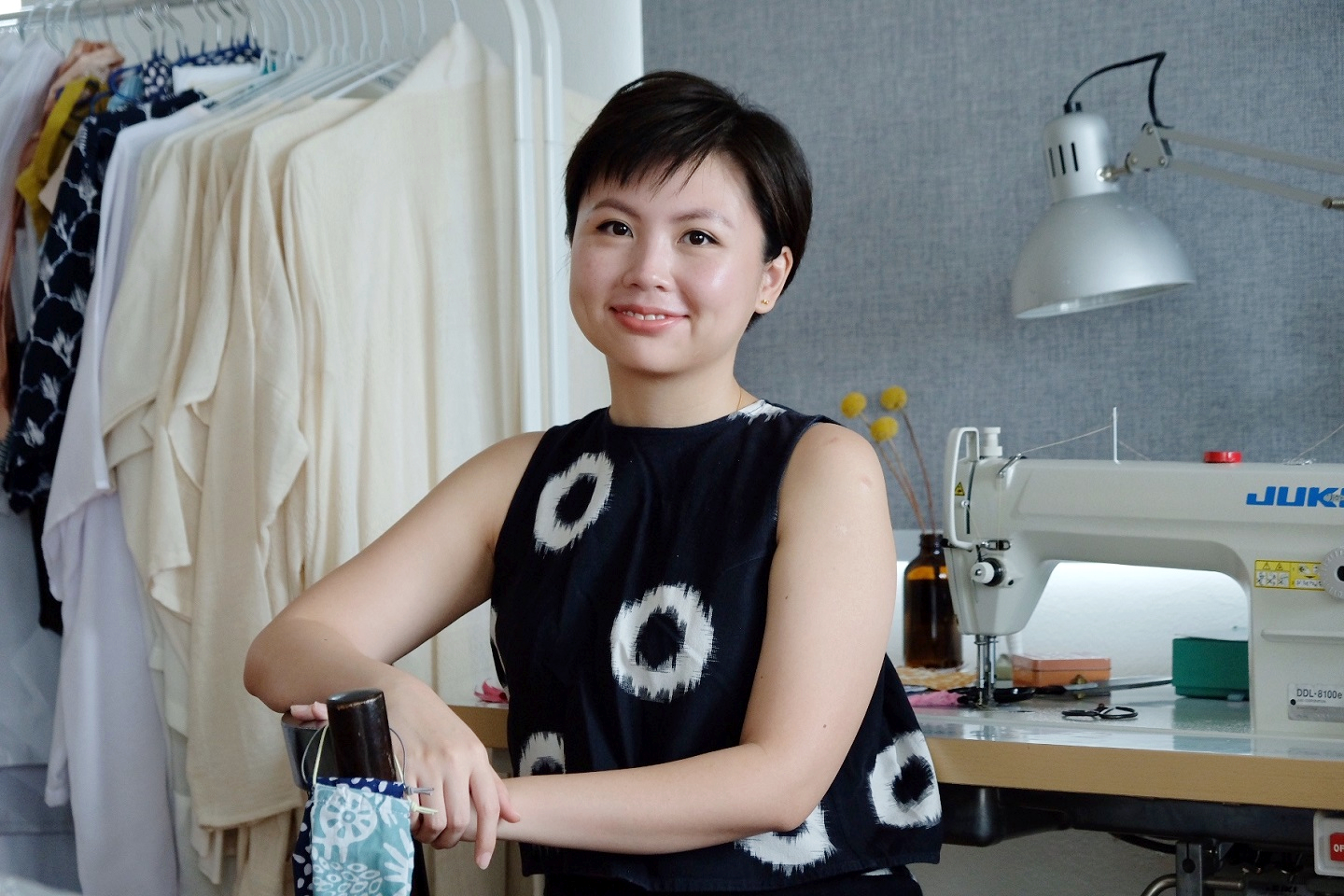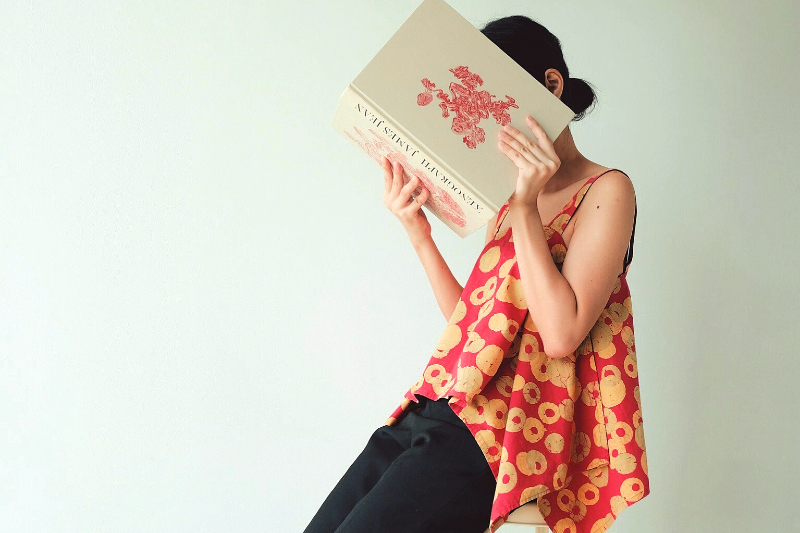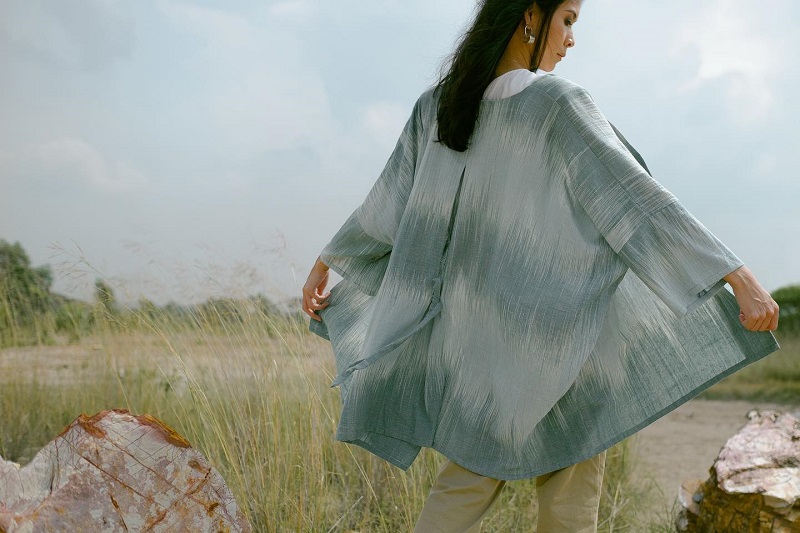
Yeap Xe Linn’s zero-waste clothing company Little carries women's and children's clothes as well as other accessories (Photo: Little)
The fashion industry is notorious for producing insurmountable waste and taking part in unethical practices such as incinerating unsold stock and underpaying workers. While fast fashion brands continue to push their moneymaking agenda, which heavily pollutes the earth, or make questionable eco-friendly claims, it is encouraging to see smaller businesses committing to keeping our planet safe. Yeap Xe Linn’s zero-waste clothing company Little is the perfect example.
Yeap, who studied fashion design at Middlesex University London, says she was astonished by the amount of scrap fabric left behind after making clothes. “When I was dressmaking and even while at university, there were tonnes and tonnes of textile waste … I just hated looking at them because I knew so much money has been spent on these fabrics. Most of the fabrics dumped were beautiful and I didn’t think they should be wasted like that,” she says.
1_002_1.jpg

A classmate showed her a whole new perspective. “I didn’t know about zero-waste cutting. People have reinvented the dressmaking patterns but there isn’t a rule to it; you just have to make your own rules and measurements. I learnt about this from a friend of mine in class. She did her whole project on zero-waste cutting, and I thought that it was just so amazing,” she explains.
After university, Yeap worked as an assistant designer before deciding to go her own way. Textile waste was not the only reason for this. “When assisting other people, your voice isn’t heard. And then, in a way, you’re constantly trying to please other people. I felt like nothing I did was good enough,” she adds.
Yeap quit her job in 2017 and spent the year developing zero-waste patterns. “You know those montages of people solving crimes? [Drawing zero-waste patterns is] nothing like that. It’s so boring. You just sit down and look at photos, draw out the idea of the top or dress you want and then figure out the calculations and proportions.” She spent a lot of her time crunching numbers and creating possibilities through trial and error.
little.jpg

Finally, Little — Yeap’s nickname from university and a representation of the brand’s lack of waste — was launched in April 2018 as a zero-waste children’s wear line. However, it was, in her own words, a flop. She visited bazaars and sold online, but customers were few. Yeap uses high-end materials and insists on paying her seamstresses fairly, so she charges premium prices.
“Customers told me ‘if you made this in adult sizes, I would buy it’, so I tried it,” she says. Little’s first capsule collection for adults was released in 2019, and the response was far more favourable. The brand still stayed true to its environmentally friendly ideals.
“The pieces were very limited and they were made to order. I don’t want to cut the fabric if no one’s going to buy [the clothes] because I can use [the fabric] for something else. I don’t want it to be wasted or have stock just sitting there,” Yeap explains.
Being zero-waste is quite an incredible feat for any fashion store. Little’s patterns are designed to fit together perfectly, like pieces of a jigsaw puzzle, leaving no fabric scraps behind. For each creation, Yeap has had to reinvent a whole new way of cutting to ensure the material is used in its entirety. “I feel like the biggest challenge is to make something look like it was effortlessly made and is recognisable. This is because if all the measurements of the pattern are off, then, obviously, the shape is off,” she says.
real.m_x_little.jpg

Soon after her first adult clothing collection, Yeap collaborated with Real.m to create a range of clothing that reduced their waste drastically. “They had tonnes of leftovers from their previous collection. It was like 40% waste or something ridiculous … They asked if we could use that fabric and I said definitely. So, we came up with four styles of unisex coding. They were free size and easy to wear,” she explains. The collection sold out.
Covid-19 and the Movement Control Order, however, forced many businesses, including Real.m, to close shop. Still, Little has managed to adapt and even help those in need. Early on, when face masks were hard to find, Yeap made them with Kelantanese batik. She organised a giveaway, and those who fit her criteria — families with children, elderly people or frontline workers — were given free masks. Although she felt it was “not on brand”, the demand for masks increased, so she began selling them as well. As fit is crucial, Little’s masks are not 100% zero-waste. Still, Yeap intends to take the waste of about 600 masks— which currently fits in an A3 envelope — to a textile recycling facility.
She is working on an exciting new collaborative collection that she hopes to release by early November. “I can tell you that it’s going to be women’s wear, it’s going to be really fun, and definitely zero-waste and eco-friendly.”
This article first appeared on Aug 10, 2020 in The Edge Malaysia.


